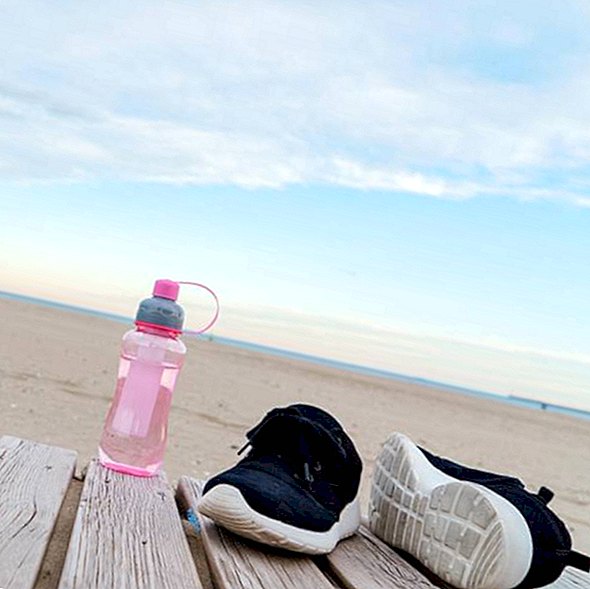Training break on vacation: How fast does our body actually break down?

Relaxing on your couch, gently lapping gently and lazily dreaming away is wonderfully relaxing. For many, holidays also mean: holidays from sport.
Unfortunately, the body is very fast in depleting its resources. This is evolutionarily conditioned and means that what is not needed can go away. Ill patients who are bedridden notice this immediately: "With such maximum immobilization, up to 35 percent of the strength is gone after one week," says Professor Ingo Froböse, head of the Center for Health at the German Sport University Cologne. Fortunately, a vacation is not a disease. Accordingly, the consequences are less drastic.
A week usually causes little problems. For two weeks without physical activity, you have to expect repercussions, "says Froböse.
So we'll remember it on our usual jogging session, when we did not do any sports on vacation: "About ten to fifteen percent of endurance performance has disappeared after two weeks," estimates Ingo Froböse.
It depends on the sport - and on the age
In sports that rely on power, such as Crossfit, gym or circuit training in the gym, the loss can be higher. Decisive are two things: the training experience and the age. "Anyone who has ever acquired a high level of power will also keep it in. The body has stored it and can retrieve it at any time," says sports scientist Dr. med. Heinz Kleinöder of the Institute for Training Science of the Sport University Cologne. "However, if you have been training for only three months and then have to wait two weeks, you will notice that the adjustment has not stabilized after such a short time."
In addition comes the age: The younger someone is, the less drastic a break in training becomes noticeable. This is confirmed by a study from the USA last year: A group of trained young men in their early 20s continued with strength training for two weeks and were nevertheless able to maintain their level of strength.
It becomes problematic for people who are also inactive in their everyday lives
Fitte, young athletes can therefore, in good conscience and without consequences, sometimes take a one to two-week break. The situation is different with those who mostly sit at their desks and practice sports as moderately as possible. "These people often come from an inactive life into an inactive vacation phase," says Froböse. "And that's not cheap."
Because we regenerate through activity much better than on the couch - and that both physically and psychologically. If you really want to relax, you should not just lie on your lazy skin. In addition: Most of us eat more on vacation and travel with a plus of two or three kilos.
When I'm physically active, I can afford to stay at the buffet longer and access it
Good to know: It does not have to be a lot of sports, as the experts agree: Every day an hour on the beach for a walk, more often a swim, that's enough. And if there is a gym in the hotel, why not do some exercises there without time pressure? "When I have rest, I can develop a better body sensation, the sun also helps to build up strength," says Kleinöder. "Most of the time you even feel like you're training a bit on holiday."
After the holidays you should make the training entry gentle
If you have not done anything despite your good intentions during your holiday, you can start slower. Froböse recommends for the restart a moderate endurance training such as jogging, cycling or swimming, to stimulate circulation and metabolism again - in the first two weeks so that you can still talk well.
Even with the strength training you start best with a lower weight than before the holiday. Because: "The activation of the respective muscle fibers is not so optimal, if I have not used them on holiday." In addition comes the power loss.
The muscles need at least twice as long to rebuild as the cardiovascular system
The best way to increase the weight so that after four weeks back to the starting weight before the holidays arrived.
And what about an illness? Froböse advises caution, because while the body is recovering after vacation, it is weakened after illness. If the regeneration is not over yet, you notice that at the heart rate. A four to six beats increased resting heart rate means that the immune system is still busy and the body is better left alone.
In order to find out his own resting heart rate, Froböse advises to measure the heart rate for a week in a completely normal situation. Whether after illness or vacation is always for him: "Listen to your body and its needs."
The best exercises for the holidays:
Three exercises are enough to keep your big muscles fit. Professor Ingo Froböse recommends a combination of:
1. squats for the leg and pom-muscles
2. One pendulum sitting for abdomen and back
3. pushup for shoulders and upper body (If you can not do it on the floor, use a table or chest of drawers)
The exercises are done each time until the muscles burn.










